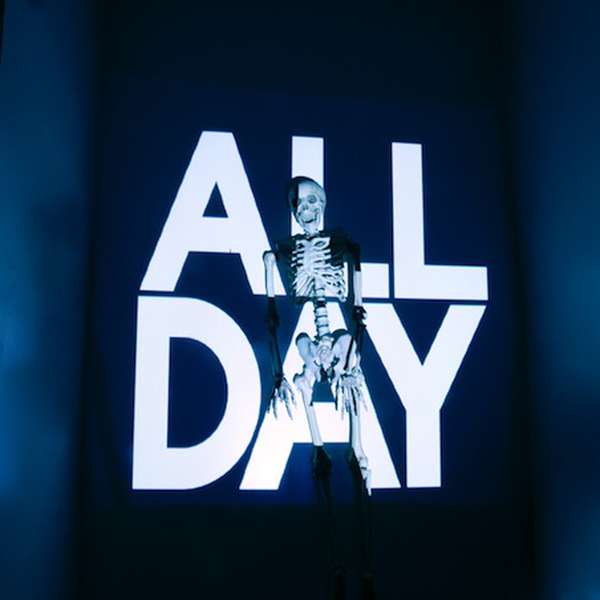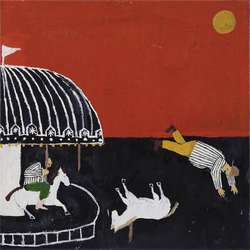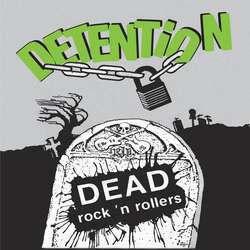Girl Talk is Gregg Gillis, a DJ from Pittsburgh that has been praised up to the leader of the mash-up sub-genre. For those who don't know, mash-up is when a DJ layers multiple tracks from different songs on top of each other to create new tracks. This is usually supplemented with new beats and various DJ effects. It makes more sense when you hear it. Girl Talk is known for using a wide range of samples from Three Six Mafia to Neutral Milk Hotel. He seems to define this genre to the public, or more specifically, to the mainly uber-hipster demographic. This is Gillis' fourth full-length of remixes, and has about all the hype you can get. In fact, a rival mash-up DJ disguised his own work and sent it around the internet as the leaked version of Feed the Animals.
After the widespread success of 2006's Night Ripper, expectations seemed to be pretty high for his next release. The flawless transitions and combination of genres throughout every song on Night Ripper gave Gillis a lot to live up to. The glitch-y speed and sheer number of songs sampled are the biggest appeal for Girl Talk's style. And he comes through on only one or two of these aspects.
Feed the Animals works pretty well for what it is; a well-executed and organized mixture of mainstream rap and old rock songs. However, there is only a touch of the sped-up and spastic feel of Night Ripper, which is what keeps bringing me back to Girl Talk. It's much less often that I laugh at the oddity of the songs chosen, because each part lasts longer and transitions slower. This sounds more like the slower mash-ups of Party Ben and the Hood Internet, and less like the party-oriented remixes I attribute to Girl Talk.
Now, even though I might not like the pacing of this album, I still enjoy the unlikely pairing of some of the artists. It just doesn't flow as well as I'd like it to, like someone's taken the sting out of Girl Talk and added another minute to all of his songs. But an important thing to add is that he is following in the footsteps of Radiohead, etc.; you can choose how much you pay for the album at the label website. And, if you choose to pay nothing, you get one question with six or seven choices as to why you paid nothing. What some might see as intrusive, I see as constructive. From a label's perspective, it might be productive to see what kind of people choose to not pay for the music they release.






